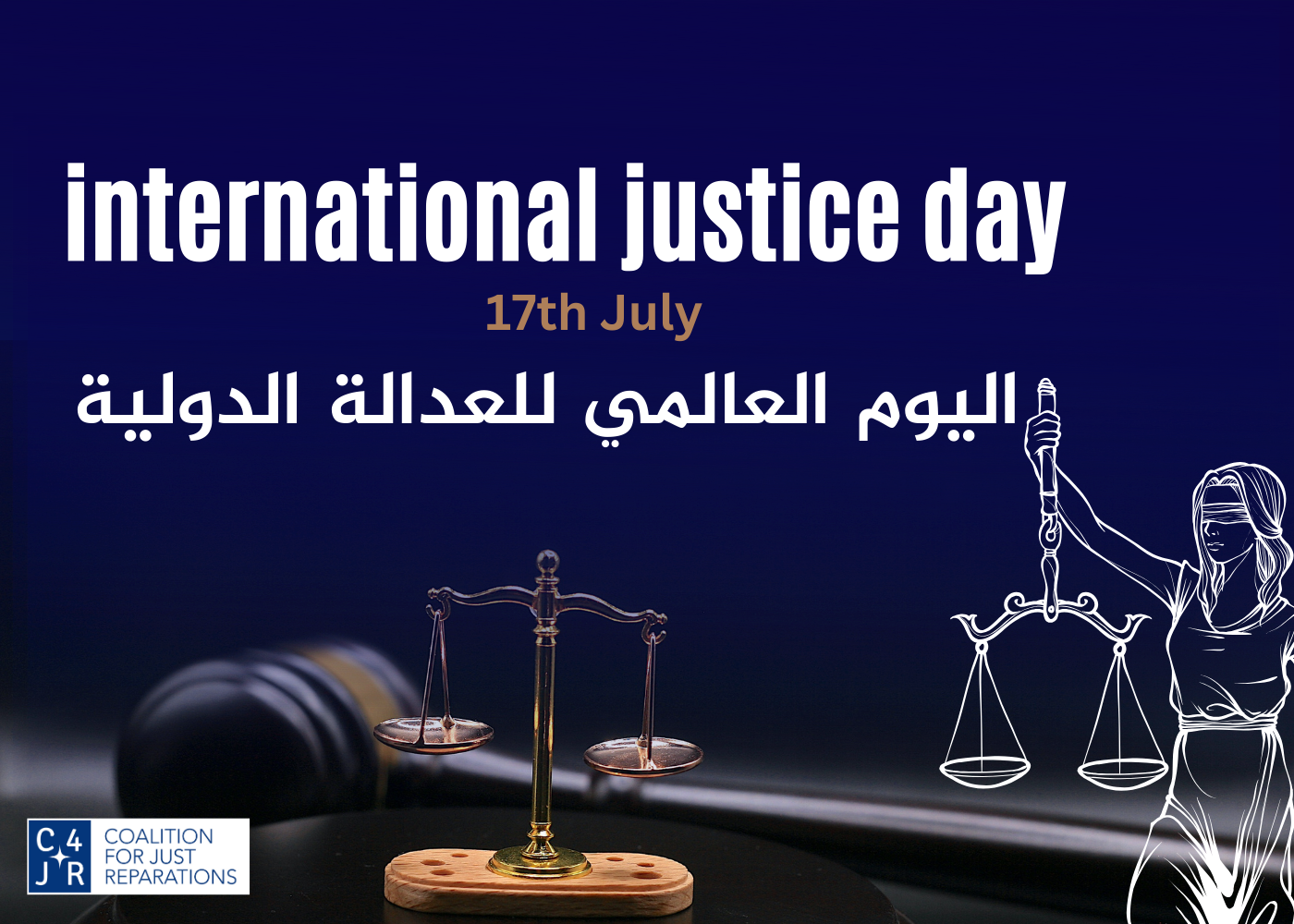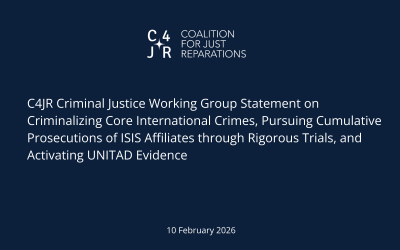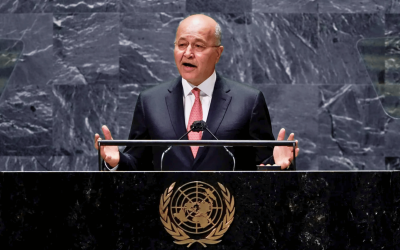On today’s Day of International Criminal Justice, the Coalition for Just Reparations (C4JR) wishes to draw attention to recent concerning rulings and urge the government of Iraq to pass legislation which incorporates international crimes in domestic legislation, rather than simply referring to it in sentencing. This legal reform is essential to ensure justice for all victims of ISIL atrocities and to uphold the principles of international law.
Last week, an Iraqi court issued a death sentence against one of the wives of the former ISIL leader Abu Bakr al-Baghdadi, alleging that she was complicit in crimes committed against Yazidi women captured by the militant group, which they defined as crimes against humanity and genocide.
According to the statement issued by Iraq’s judicial council, the Karkh Criminal Court sentenced the woman for “detaining Yazidi women in her home” and facilitating their kidnapping by “the terrorist (Islamic State group) gangs in Sinjar district.” Crucially, the court said that the ruling was issued in accordance with Iraq’s anti-terrorism law and the Yazidi Survivors Law (YSL), determining the crimes as including genocide, despite Iraq not having this crime in its domestic legislation.
The month before, a Baghdad court handed a death sentence to a suspected member of ISIL for also “committing genocide” against Yazidis.
The Yazidi genocide, which began in 2014, saw thousands of Yazidis killed and kidnapped by ISIL. The militant group systematically targeted the Yazidi community in Sinjar, committing mass executions, sexual slavery, and other atrocities. The violence also impacted other minority groups, including Christians, Shabak, and Turkmen.
The United Nations has recognised the atrocities committed by ISIL as genocide, urging member states to take action against the perpetrators. Human rights organisations including Amnesty International and Human Rights Watch have also called for comprehensive legal frameworks to prosecute such crimes effectively.
Legal experts and human rights activists have emphasised the importance of incorporating international crimes into Iraq’s domestic legislation. “Without a legal framework that recognises genocide and crimes against humanity, it is challenging to achieve justice for the victims,” said C4JR’s Criminal Justice Working Group coordinator, Hasan Jameel, a lawyer in Baghdad. Iraqi officials have also acknowledged the need for legal reforms to address these gaps.
The YSL, passed in 2021, aims to provide restitution and support to survivors of ISIL atrocities. It includes provisions for financial compensation, access to medical and psychological services, and measures to facilitate the reintegration of survivors into society. However, the law’s implementation has faced challenges due to the lack of a robust legal framework for prosecuting international crimes.
Iraq’s current legal framework does not explicitly recognise genocide, crimes against humanity, or war crimes, complicating efforts to prosecute such offenses. In contrast, countries like Germany and Rwanda have enacted laws that incorporate international crimes into their domestic legislation, enabling more effective prosecution and accountability.
“Rulings under anti-terrorism legislation with a vague reference to YSL article 7, which recognised genocide and crimes against humanity committed against Yazidis and other minorities, are a poor substitute for proper criminal trials for ISIL committed international crimes carried out in a human rights compliant and survivor-responsive manner,” says Dr. Bojan Gavrilovic, Head of Rights and Justice at the Jiyan Foundation for Human Rights. “We are not against ISIL members being tried and punished, to the contrary, but justice requires a proper procedure, full inclusion and protection of survivors and correct qualification of horrendous crimes for what they are: genocide, crimes against humanity and war crimes.”
On today’s Day of International Criminal Justice, C4JR wishes to draw attention to these concerning rulings and urge the government of Iraq to pass legislation which incorporates international crimes in domestic legislation, rather than simply referring to it in sentencing. This legal reform is essential to ensure justice for all victims of ISIL atrocities and to uphold the principles of international law.
“The Iraqi government agreed for UNITAD to work in Iraq and to investigate and collect evidence of ISIL crimes, but now it’s been ten years and there has been no proper plan for the Iraqi government to use this evidence or establish a tribunal or court,” says Shireen Khudeeda, a courageous Yazidi activist and human rights defender. “The Iraqi government does not have a proper plan. Ten years after the genocide, will the Iraqi government take steps towards justice?”



